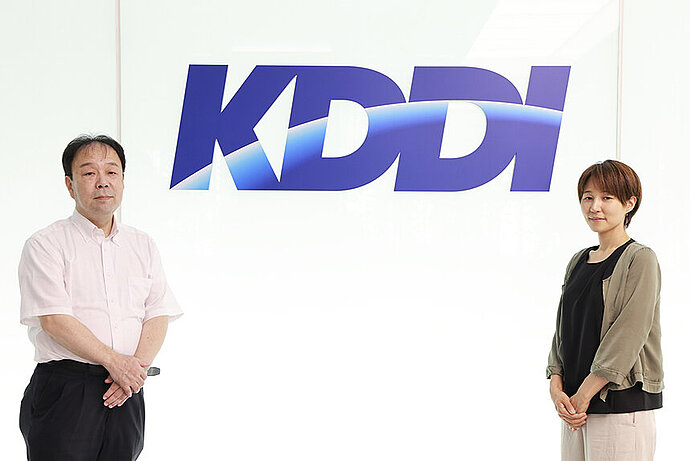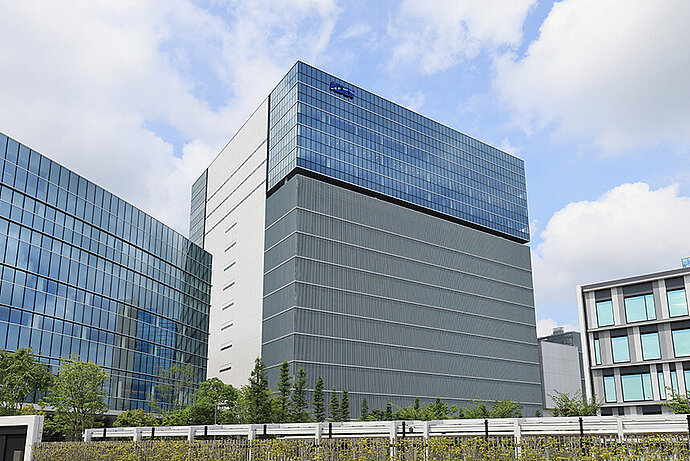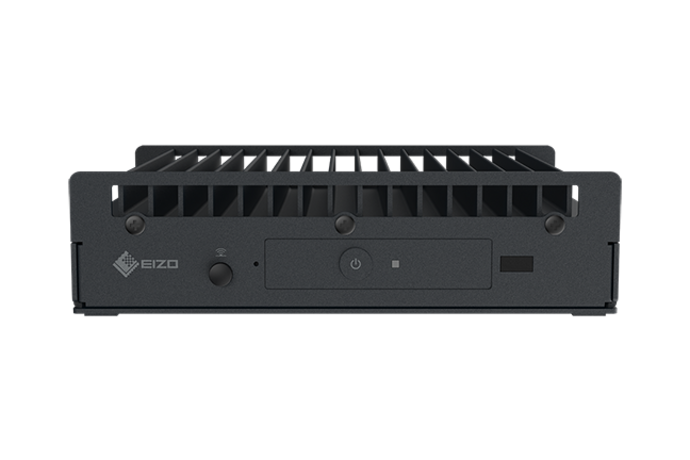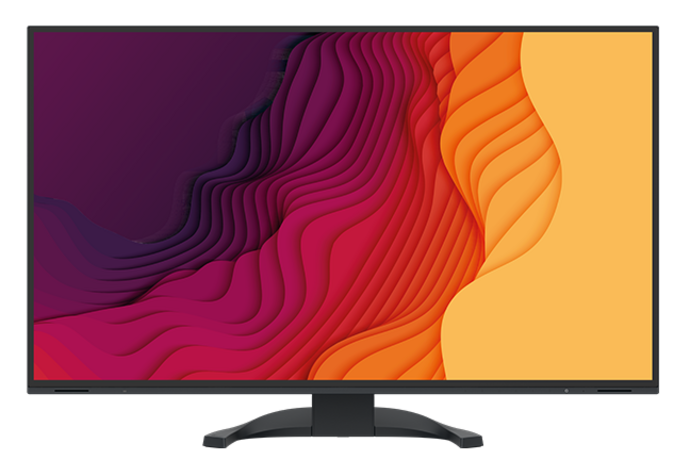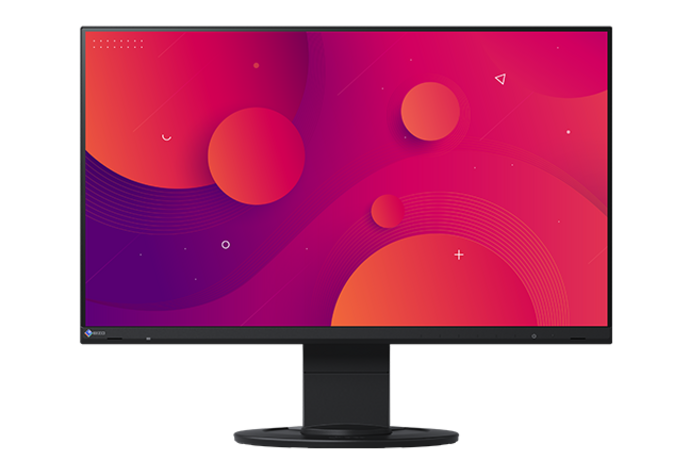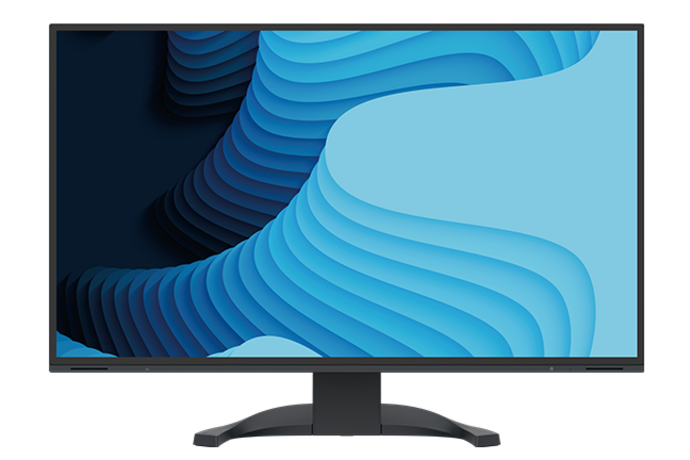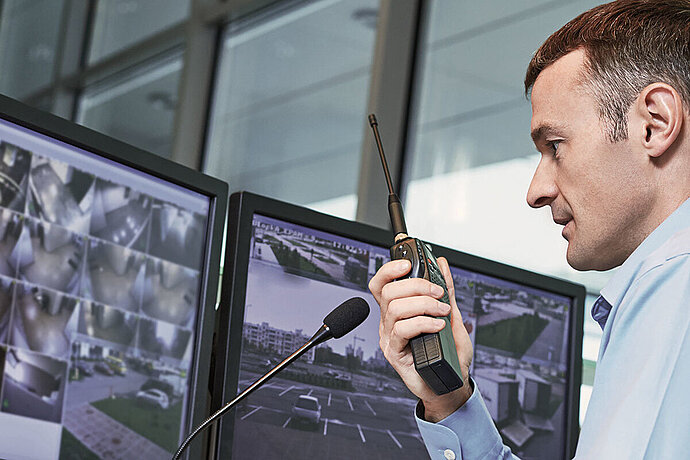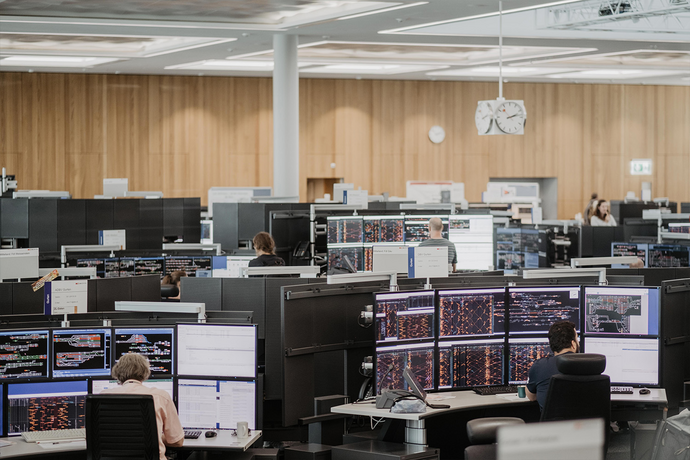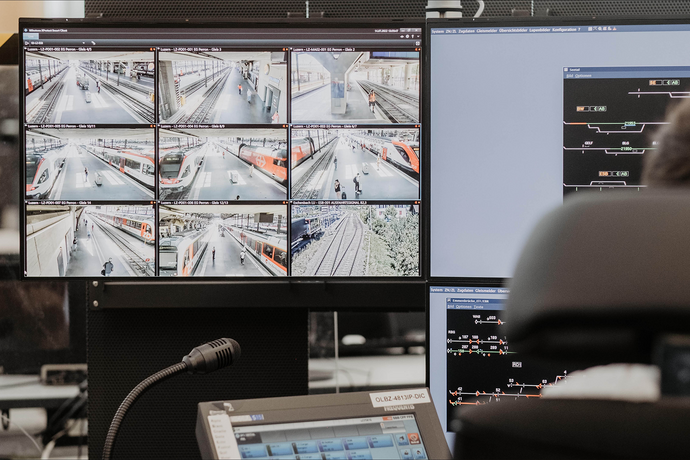In July 2021, Japanese telecommunications company KDDI opened a new network operations centre aiming to provide reliable communications services even in the event of a major natural disaster. The new operations centre has a fully integrated system for operating and monitoring services, which will make it possible to respond to problems from a central location.
DuraVision and FlexScan Referenz
IP Decoder Boxes and FlexScan Monitors installed at KDDI's Network Service Operations Centre
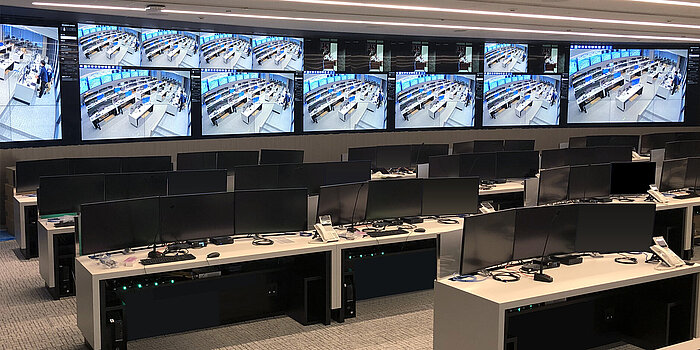
The decisive factors
The deciding factors: 4K support and computerless operation for easy maintenance
To display surveillance camera images, KDDI installed six EIZO DuraVision DX0211 IP decoder boxes and 177 EIZO FlexScan EV3285 as well as FlexScan EV2785 4K monitors for viewing in the surveillance room. In addition, 309 FlexScan EV2460 monitors were installed in the offices.
We asked the key decision-makers for this project why they chose EIZO and how the solutions support their operations.
EIZO's IP Decoder Box for remote site monitoring
Migaki: To give operators a solid overview of the situation at different locations, we need to continuously display high-resolution images from multiple cameras. High-performance PCs would have had to be used to decode these video streams, however, they entail security management costs, such as password management, regular updates, anti-virus measures, and log management. We chose EIZO's IP decoder boxes because they offer a straightforward way of displaying multiple camera images from different locations simultaneously, without the need for a PC. This meant that we could deploy a simplified system that still met security standards while reducing our costs.
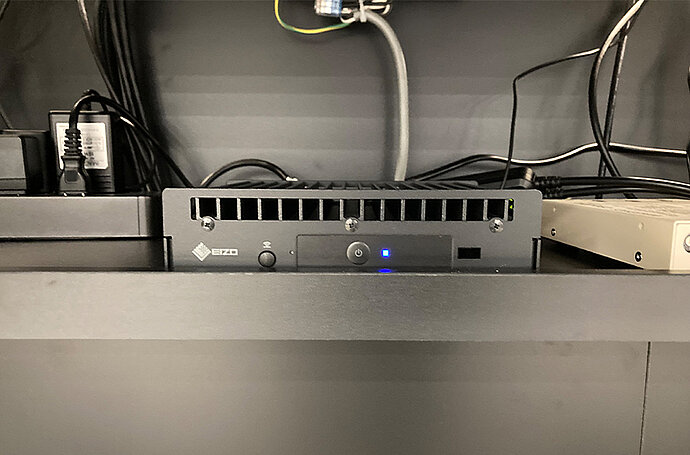
DX0211-IP for display on a video wall.
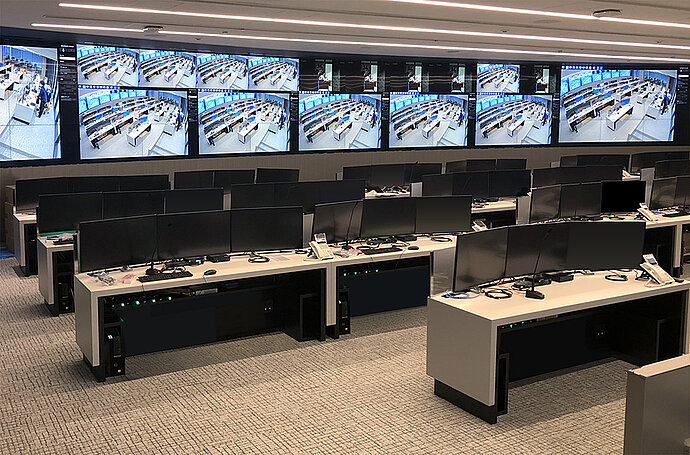
Operations Centre for Network Services.
The DuraVision DX0211-IP connects to multiple IP cameras at each location and outputs the images in 4K resolution to the video wall at the front of the room. A significant benefit is the fact that the DuraVision DX0211-IP can display high-resolution images without drawbacks such as latency. We can also connect to other data centres in Japan via the network, sharing camera images with our headquarters as well as locations in Shinjuku, Tama and Osaka. With the DX0211-IP, playing back camera images from other locations with just a few simple settings.
Our application is more about monitoring situations than preventing crimes. Therefore, we found it encouraging the DuraVision DX0211-IP has proven itself in medical and public facilities with similar requirements. We chose the DuraVision DX0211-IP because it supports 4K input and output, has a compact size and fanless design, and can be operated by remote control or mouse, which increases flexibility.
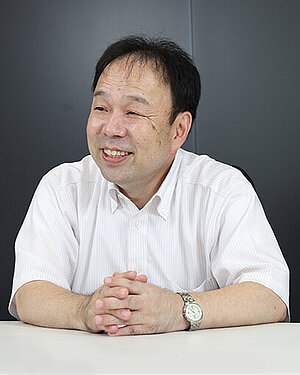
We chose EIZO's IP decoder boxes because they offer a straightforward way of displaying multiple camera images from different locations simultaneously, without the need for a PC. This meant that we could deploy a simplified system that still met security standards while reducing our costs.
Shuichi Migaki
Managing Director
FlexScan EV3285 and EV2785 4K monitors
Displaying large amounts of information simultaneously
Migaki: The monitoring room is the heart of our Network Service Operations Centre. As operators must be able to view a lot of constantly changing information, our main requirement for monitors is therefore a large screen diagonal as well as high detail resolution for optimal visibility.
Sasaki: The FlexScan EV3285 and EV2785 4K monitors from EIZO ensure small text and images are sharp and pleasant to read. The Picture-by-Picture (PbyP) function, which allows multiple image signals to be displayed side by side, has also proved extremely useful. The FlexScan EV3285 also has a Picture-in-Picture function which allows for an output with a main image and a reduced image inserted within it. Comparing information from multiple sources helps to make the right decisions.
Migaki: The frameless, completely flat design gives it a light, minimalist look while leaving plenty of desk space. The result is a comfortable working environment with effective use of space.
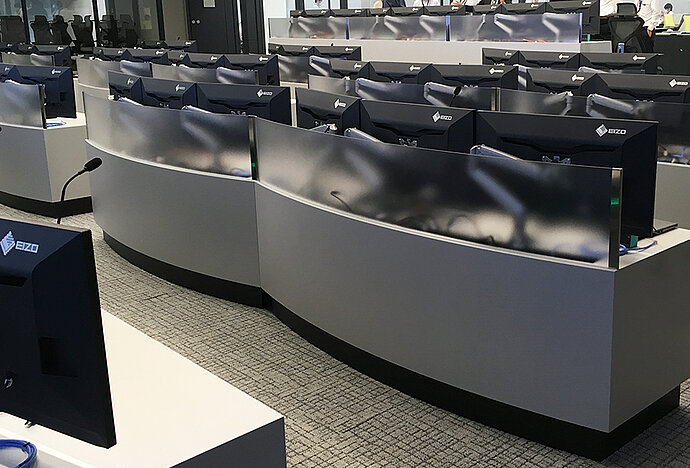
EV3285 in operator workstations.
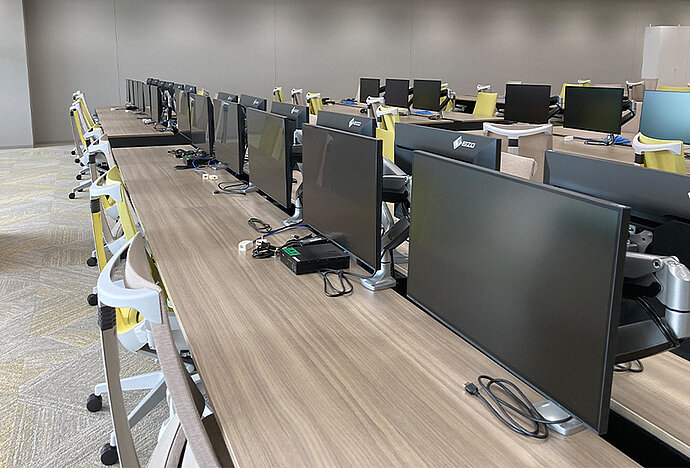
EV2785 in operator workstations.

The FlexScan EV3285 and EV2785 4K monitors from EIZO ensure small text and images are sharp and pleasant to read. The Picture-by-Picture (PbyP) function, which allows multiple image signals to be displayed side by side, has also proved extremely useful. The FlexScan EV3285 also has a Picture-in-Picture function which allows for an output with a main image and a reduced image inserted within it. Comparing information from multiple sources helps to make the right decisions.
Shiori Sasaki
Deputy Head of Engineering Department
FlexScan monitors for the office environment
KDDI's vision to promote different working styles and consideration for the environment
Sasaki: In July 2020, KDDI introduced a hybrid working model to meet the changing demands of the world of work and allow each employee to flexibly determine where they work. We are also promoting digital transformation internally to improve our offices and IT environment and to realise different working styles. One of these initiatives is the optimisation of our office space.
With the introduction of a company-wide hybrid system that combines teleworking with office work, we wanted to create a co-creative office space which unites developers and operators; while reducing the number of seats by about half compared to the previous office concept. We also opted for monitors which can be attached to freely adjustable arms to facilitate collaboration, for instance, if a developer and an operator want to talk while both looking at the same monitor. Not only is the result user-friendly, but it also provides a visually appealing, unified look to the workplace.
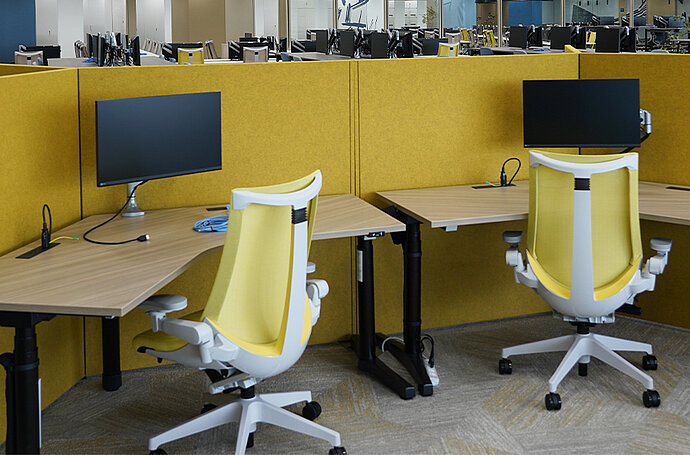
EV2460 mounted on a support arm for use in the office
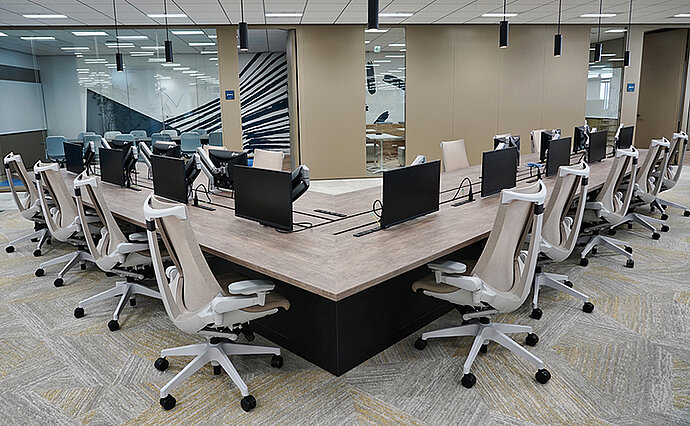
EV2460 at the workplace
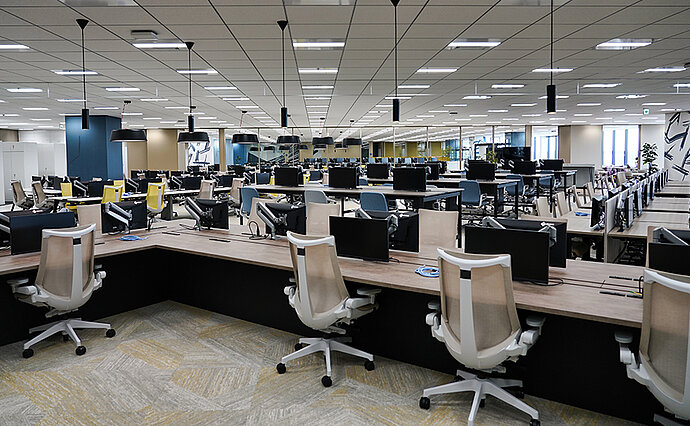
View into the open plan office
Our most important requirement for office monitors are that they do not tire the eyes and they are durable. As these monitors are used for long periods for development work or disaster management, eye fatigue and hardware failures would cause major problems for our teams. EIZO's monitors were ideal for us because they have features such as blue light reduction to reduce eye strain and are 100% made in Japan, with a five-year warranty. It's also reassuring to know that EIZO offers excellent customer service.
Migaki: One problem we have when buying monitors is they often come with a lot of cables and other accessories which we don't need and a lot of which gets thrown away. However, with these monitors, we talked to EIZO about the impact on the environment and they suggested an environmentally friendly packaging solution. The monitors were delivered to us without a stand and cables, and they packed several monitors into each box.
This proposal was one of the reasons why we chose EIZO - it resulted in a 40% reduction in volume compared to shipping in individual boxes, and shipping costs were also reduced by more than 20%. In addition, we saved a lot of time during unpacking and installation and produced significantly less waste than usual.
Monitors are delivered in collective packaging to reduce the environmental impact
EIZO addresses the needs of corporate customers by offering customised packaging specifications to reduce the environmental impact of bulk purchases.
This provides the flexibility to meet special requirements, such as packing multiple monitors in a single carton or omitting stands and cables that the customer does not need for their installation.
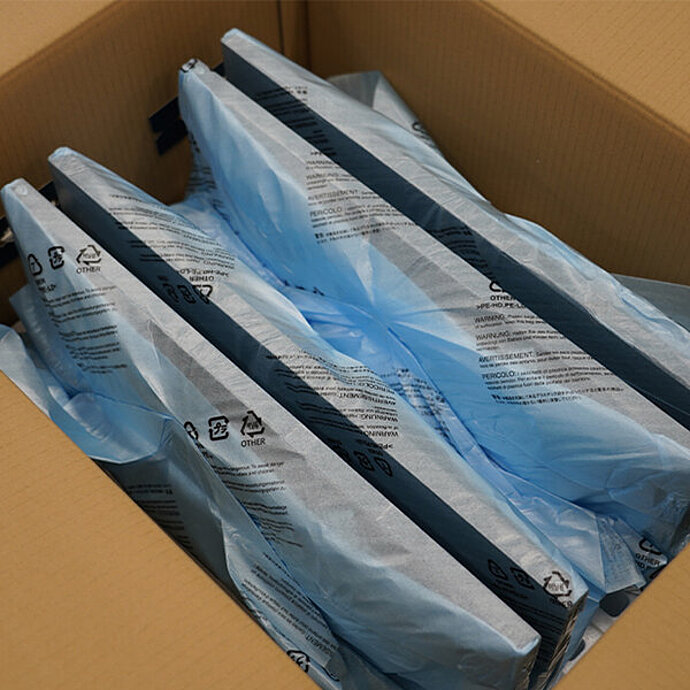
KDDI and EIZO
Outlook for the future and requests to EIZO
Sasaki: KDDI continues to play an important role in providing telecommunications services that serve as a lifeline in the event of a disaster. To make our services even more reliable, we will continue to improve our operations, develop our disaster relief measures and communications infrastructure, and promote new ways of working that can deliver results anywhere, anytime.
Migaki: EIZO is one of the few established manufacturers in Japan, and I hope they will continue to offer products and solutions that meet a high standard of reliability both domestically and internationally.
Special thanks to KDDI for their cooperation.
